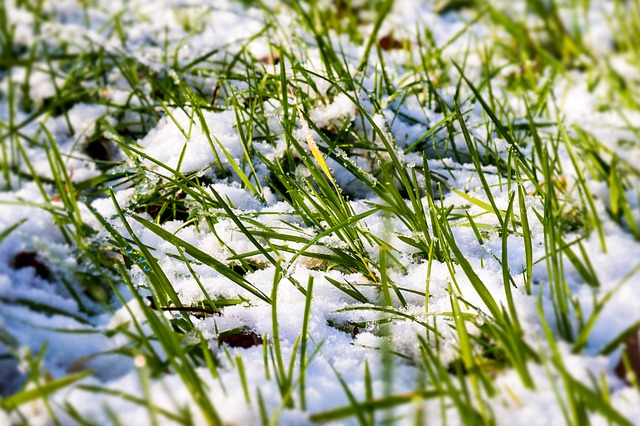
During the spring and summer months, you might need to cut your lawn weekly - but what should you do in winter? During the winter your lawn has a lot of different needs, not only is it battling freezing temperatures, but it's also trying to make the most of the few hours of sunlight.
For that reason, you can't assume that your summer lawn care regime will work in winter. So, if you've been asking yourself - should I keep my grass long or short in winter? - you're in the right place. We're going to talk you through a whole host of winter lawn care tips!
Cutting grass in winter - how often should I mow my lawn?
You certainly shouldn't mow your lawn once a week during winter, but once every month should keep your lawn from growing wild and unruly. Remember, you should never cut your lawn when it's wet, doing so can cause your lawnmower to spit out grass clippings all over the place! Pick a cool, dry day and don't cut the grass first thing in the morning. With the cold temperatures overnight, it's likely that your grass will be covered in a touch of frost. By giving it a couple of hours to dry out in the sun, you'll have a much more successful trim.
Be cautious that you don't cut your lawn too frequently. Remember, your lawn is in its slow-growing period in summer, so it will need longer between cuts to return to good health. The best thing to do is to keep an eye on the grass and the weather. When conditions are right and the grass looks in need of a good trim - go for it.
Should I cut it on a long or short setting?
During winter, we would recommend cutting your grass on a high cut setting, so that you're taking off the smallest amount of grass. It's important to do this because your grass relies on its leaves to gather sunlight and create food. If you cut the grass too short, it will have a really hard time photosynthesising food during the dark, winter conditions.
It's true that your lawn might not have the pristine appearance that you enjoy so much in summer, but allowing your grass to get a little bit longer during the winter months will pay dividends in spring! The longer your grass is in winter, the better the chance it has at surviving the harsh conditions.
What lawn problems should I look out for?
Fungus
There are a number of lawn diseases and problems that you should look out for in winter. The cold, damp conditions are ideal for moulds and fungus to grow. Keep your eye out for new clusters of mushroom, white snow mould and slime mould. These are all fungi that we've been helping people tackle for years.
So, if you're unsure how to treat these problems yourself, feel free to give us a call and arrange a free, no-obligation lawn survey. We'll let you know if we can treat your winter fungus problem right away!
More On Our Fungus & Mould Treatment >
Lawn diseases
Besides fungus, you should also keep your eye out for other signs of lawn diseases. Unusual dry or yellow patches could indicate that your lawn is in need of a helping hand. Much like humans, lawns are especially prone to diseases in the winter because they're most vulnerable at this time of year.
The lack of sunlight and available nutrients put your lawn at a much higher risk of developing a disease, catching it early can prevent a disease from destroying your entire lawn. We have treated a wide range of lawn diseases over the years, so we're more than happy to take a look at your lawn if you think it's at risk.
More On Our Lawn Disease Treatments >
If you want help with your lawn care this winter, Lawn and Weed Expert can provide lawn care maintenance and treatments that are tailored to you! Booking a free, no-obligation lawn survey is easy, simply contact us to get the ball rolling.
Contact Lawn & Weed Expert >
Read More: Do Weeds Grow in Cold Weather?